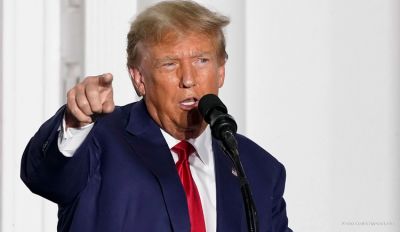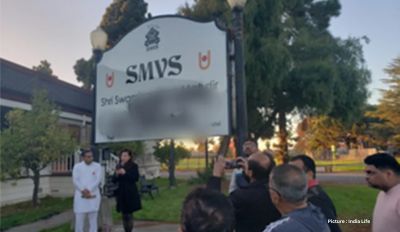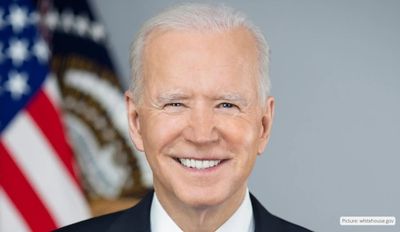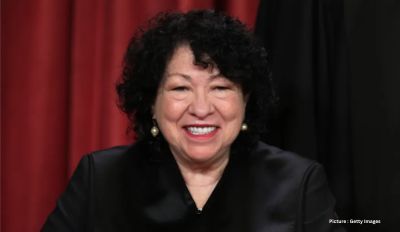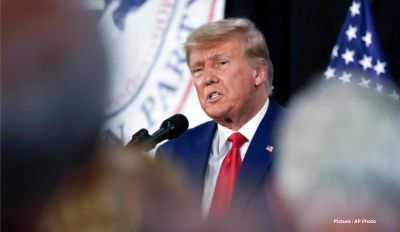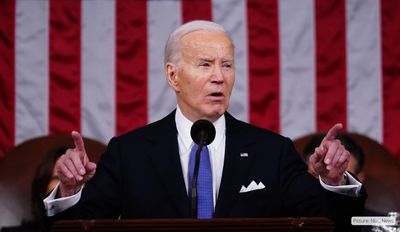Sen. Joe Manchin announced that he will vote against Democrats’ expansive election and ethics reform bill, dealing a blow to one of his party’s top priorities. In an op-ed published in the Charleston Gazette-Mail, the West Virginian warned that “partisan voting legislation will destroy the already weakening binds of our democracy” and reiterated that he will not vote to scrap or modify the legislative filibuster.“Voting and election reform that is done in a partisan manner will all but ensure partisan divisions continue to deepen,″ Sen. Joe Manchin of West Virginia wrote in a home-state newspaper, the Charleston Gazette-Mail. He wrote that failure to bring together both parties on voting legislation would “risk further dividing and destroying the republic we swore to protect and defend as elected officials.”
The bill would restrict partisan gerrymandering of congressional districts, strike down hurdles to voting and bring transparency to a murky campaign finance system. Among dozens of other provisions, it would require states to offer 15 days of early voting and allow no-excuse absentee balloting.Democrats have pushed the legislation as the antidote to a wave of restrictive state voting laws sweeping the country, many inspired by former President Donald Trump’s false claims of fraud in his 2020 election loss. Senate Majority Leader Chuck Schumer, D-N.Y., has pledged to bring the election bill to a vote the week of June 21, testing where senators stand. But without Manchin’s support, the bill has no chance of advancing. Republicans are united against it.
Democratic Sen. Joe Manchin was unswayed by civil rights leaders who implored him to rethink his opposition to a sprawling election bill that House Speaker Nancy Pelosi said is crucial to countering a “Republican assault on our democracy.” Manchin, from deeply Republican West Virginia, told reporters, “I don’t think anybody changed positions,” in a meeting he described as “excellent.” A participant said Manchin was “fairly well dug in.”The bill, known as HR1, is a top priority for Democrats and is viewed by many in the party as the antidote to a wave of Republican-backed laws being passed on the state level that restrict people’s ability to vote. It touches on almost every aspect of voting and was already passed by the House. But Manchin threw a wrench into the works when he said he would oppose the bill. That effectively dooms the measure in a narrowly divided Senate where it is universally opposed by Republicans.
His decision sent voting rights groups and members of his own party scrambling for options, raising the prospect that no voting legislation would pass Congress to address what experts say is the greatest attack on voting rights in generation. Manchin has said “inaction is not an option” when it comes to voting rights. But he has exasperated fellow Democrats and voting rights groups by insisting his support for any legislation would be contingent on some Republicans voting for it as well. He also opposes eliminating the 60-vote requirement to break a filibuster, a step that would allow Democrats to pass the legislation without Republican votes.
“We may get to a point where the dialogue reaches a dead end,” the Rev. Marc Morial, who attended Tuesday’s meeting with Manchin, told CNN. “And Joe Manchin was fairly well dug in.” Pelosi had told House Democrats there is no substitute for the bill.“It is my hope that the passage of (the bill) will create a legacy for all of us who want to strengthen our democracy,” the California Democrat wrote in a letter to colleagues before Manchin announced he wouldn’t support the bill. Now Democrats and voting rights groups are grasping for an alternative.
Some said they’d follow Manchin’s suggestions and get behind a narrower piece of legislation known as HR4 that updates the Voting Rights Act to reinstate a requirement that new voting laws and legislative districts in certain states be subject to federal approval. Others said they wanted to increase the pressure on Manchin. Still others insisted that Democrats needed to bring HR1 to the Senate floor this month, even it it’s certain to fail, to draw attention to Republican opposition and Manchin’s.
“It’s going to get messy,” said Fred Wertheimer, president of the good-government organization Democracy 21, who helped draft HR1 in 2017. “What Manchin said is not the final word, as far as we’re concerned. “I don’t believe he is prepared to go down in history as the senator that denied millions of eligible citizens, and in particular people of color, the opportunity to vote.”The Rev. William Barber II, a key liberal activist who leads the Poor People’s Campaign, represented the breadth of liberal anger at Manchin, tweeting Monday that his group would lead a march in West Virginia to “challenge Manchin.”
Only one Republican senator, Alaska’s Lisa Murkowski, has signed onto Manchin’s preferred Voting Rights Act update, an indication of how politics on the issue have shifted since the Senate unanimously renewed the Voting Rights Act in 2006. And the newly aggressive constellation of conservative voting groups that mobilized against H.R. 1 say it will now campaign to keep the GOP united against HR4 as well.“The end result of HR4 is the same — it’s a federal takeover of the election system,” Jessica Anderson, executive director of the conservative policy organization Heritage Action for America, said in an interview. “As long as you have consensus on the right, standing together in lockstep, you’re not going to have a bipartisan break.”
“They are not showing a readiness to stand up and do what’s right, so the notion you could get 10 of them to come along is farfetched,” said Rep. John Sarbanes, D-Md., a primary sponsor of HR1. “You are not going to get real change without filibuster reform.”



